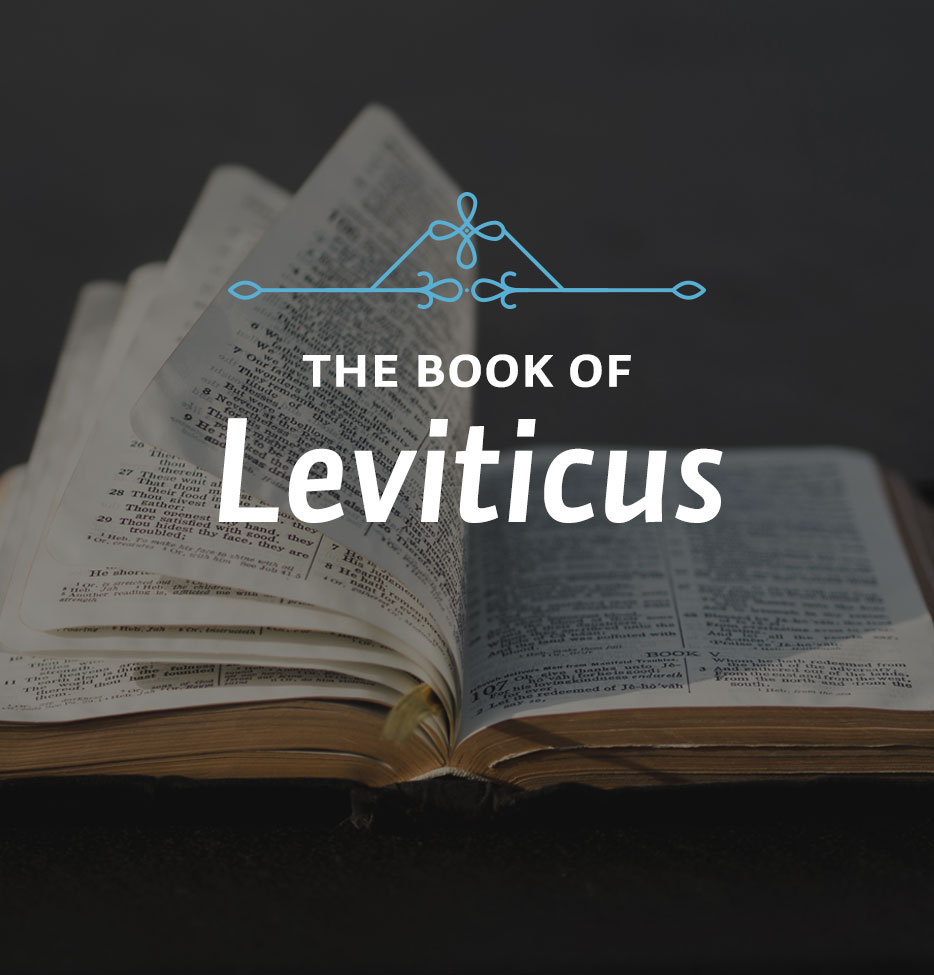In the matter of these purification laws, Jesus explains what these ritual requirements were meant to do. The principle is that it’s not what comes into you or touches you that makes you unclean, but what comes out. The problem is not external, but, rather, the problem is the uncleanness of your heart. Jesus said: “Don’t you see that whatever enters the mouth goes into the stomach and then out of the body? But the things that come out of the mouth come from the heart, and these make a man ‘unclean.’ For out of the heart come evil thoughts, murder, adultery, sexual immorality, theft, false testimony, slander. These are what make a man ‘unclean’” (Matt. 15:17-20a).
Something like this might tempt someone to say, “Then in that case, I don’t have to worry about the law.” This is true of that particular part of the law. But whenever Jesus sets something in the Old Testament aside, He does it in order that He might establish something even more important. If it’s not a question of washing our hands, what is it? It’s the cleanliness of the heart. That’s what matters. If we have understood that, then we should be even more concerned about the state of our hearts, out of which come impurities that contaminate the world in which we live. This should concern us more than the Israelites were concerned about their ceremonial purifications—and we know how concerned they were about that.
Jeremiah said, “The heart is deceitful above all things and desperately wicked: who can know it?” (17:9). Who can cure the heart? The answer is that no human can do it. Yet with God all things are possible. Jesus is able to cleanse your heart, however impure it may be, just as His power healed the woman who had the issue of blood. He will do that if you ask Him.
The third section of Leviticus deals with the holy life (chapters 17-24). There are prohibitions against eating blood in chapter 17. Chapter 18 designates unlawful sexual relationships: the Israelites were not allowed to marry close family members. This makes good genetic sense. In chapter 19 there’s a collection of various laws, most of which had already been given in Exodus. Chapter 20 contains punishments for various sins starting with those that require the death penalty. Leviticus 21-22:16 gives rules for the personal lives of the priests, with descriptions of unacceptable sacrifices following in the remainder of chapter 22. In chapter 23 we have a repeated description of Israel’s holy days and feasts.
The section ends with the second historical incident, which is about the man who blasphemed against God (Lev. 24:10-23). At that time, the Israelites didn’t know exactly how to deal with this sin. They put him outside the camp for a time until word came from God that he was to be killed for his blasphemy.
In Leviticus 11:44-45 God says, “Be holy, because I am holy.” That’s the theme of Leviticus, and, in a certain sense, it’s the theme of the entire Word of God. A holy God demands a holy people. Therefore, the study of Leviticus should be a sobering experience. Do we take holiness seriously? Probably not as we should. But God does. And because God is holy, do we realize that we must be holy, too? It’s not optional. God tells us that we must be holy. As we answer those questions, we need to ask what changes we will make to live a holy life.
Holiness is the destiny of God’s people. In that great closing section of the book of Zechariah, the prophet envisioned a future day of great Jewish blessing. On that day not only will the people be holy, but everything about them will be holy. “On that day, ‘HOLY TO THE LORD’ will be inscribed” not just on the high priest’s turban, but “on the bells of the horses, and the cooking pots in the LORD’s house will be like the sacred bowls in front of the altar. Every pot in Jerusalem and Judah will be holy to the LORD Almighty” (Zech. 14:20-21). What is Zechariah talking about? Holy bells and holy cooking pots? Zechariah means that the people are going to be so holy that everything about them will be holy.
But holiness is not only the destiny of the Jews. If you really belong to Jesus Christ, holiness is your end as well. Have you ever thought about heaven as the place where you are going to be holy like Jesus Christ? Most of us don’t. We think relationally today, so we think of love and that heaven is where we’re going to love God perfectly, and He is going to love us, and we’re all going to swim around in a wonderful sea of love. I do not doubt that all of that is true. Certainly we’re going to love God, certainly God loves us. But the Bible characterizes our destiny as holiness. In that day we’re going to be holy, even as God is holy.
In John’s first letter, he wrote, “But we know that when he appears, we shall be like him, for we shall see him as he is” (1 John 3:2b). We aren’t perfectly holy now, but we are going to be one day. We’re going to be like Jesus, for we’re going to see Him as He is—the holy Son of God. The next verse in 1 John immediately builds on this: “Everyone who has this hope in him purifies himself, just as he is pure” (v. 3). If you really believe that one day you’re going to be holy, then you’ll work at it now. You can’t do it by yourself, and it will not happen completely in this life. But by the grace of the Lord Jesus Christ you can continue to purify your life to the praise of His glory.






